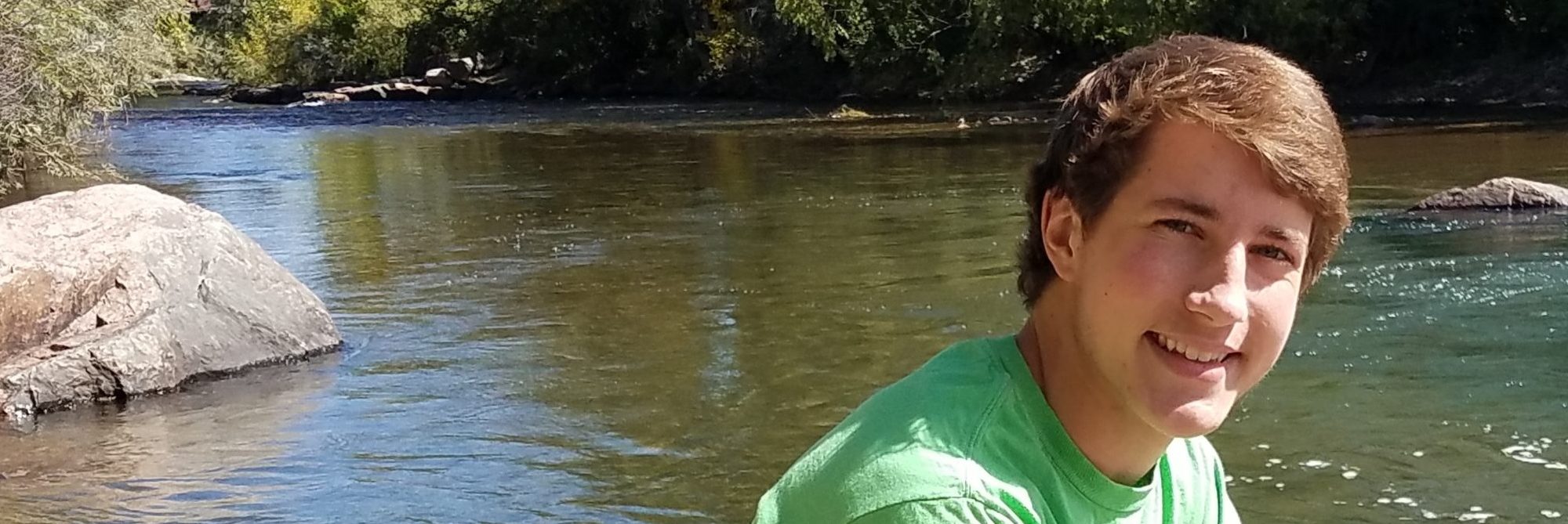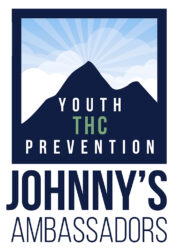By Laura Stack
Today, June 8, 2021, marks the dawn of a new epoch in protecting youth from the harms of marijuana, signaled by the overwhelming bi-partisan passage of Colorado House Bill 1317 to regulate marijuana concentrates (http://leg.colorado.gov/bills/hb21-1317). More than seven years after the passage of legal recreational marijuana, the Colorado legislature recognized how high-potency marijuana can harm young people and put several important regulatory measures into place. The bill passed unanimously 35-0 in the Senate and 58-7 in the House, making it veto-proof from Governor Jared Polis. This was unheard of even a year ago.
In summer 2020, I was contacted by Dawn Reinfeld, a parent and activist in Boulder, CO. She came across one of my Facebook posts about Johnny and reached out to introduce herself. She wanted to run a bill to regulate THC products in Colorado and asked for my help to educate the legislators about the dangers of marijuana use in adolescents. She wanted me to tell the story of Johnny’s psychosis and suicide and describe how easy it was for an 18-year-old to legally obtain a medical marijuana card and illegally sell to younger children.
Dubious but willing, John and I and several others arrived at her home on August 6, 2020, and we met in the backyard with Colorado Senate Majority Leader, Steve Fenberg, as well as Representative Judy Amabile, whose family had also been severely impacted by marijuana. We cried as we shared what happened to Johnny, and Senator Fenberg was compassionate but confused—he had no idea what dabbing was.
This began a journey of countless meetings with senators, representatives, congresspeople, and Attorney General Phil Weiser, sharing Johnny’s story and his warning, “Marijuana ruined my mind and my life.” Each time, I cried, as our grief was still so fresh then. It took a lot out of me emotionally, and I was unsure if anything would ever come of it. But then, incredibly, important bill sponsors signed on (Speaker Alec Garnett, Representative Yadira Caraveo, M.D., Senator Chris Hansen, and Senator Paul Lundeen, with support from Senator Kevin Priola and Representative Tim Geitner), plus twelve lobbyists from Blue Rising, Smart Colorado, Healthier Colorado, Colorado Christian University, Colorado School Nurses Association, and others. Many parents, legislators, doctors, educators, and organizations stood in support of the bill, including the Colorado Association of School Boards, Colorado Association of School Executives, and Colorado Education Association. I started to see a glimmer of hope and kept speaking out.
Originally, the bill called for a THC potency cap of 15%, and the marijuana industry sniveled so loudly, the provision was changed to fund the Colorado School of Public Health to conduct a systematic review of the scientific research related to the possible physical and mental health effects of high-potency THC concentrates on the developing brain. Their findings will inform future regulations and policy decisions at the Capitol. We will then be back with a new science-based recommendation for a THC potency cap.
The bill also:
- Tightens regulations around medical marijuana, adding new restrictions on access to potent THC products for people ages 18-20. Two physicians from different medical practices must diagnose the patient as having a debilitating or disabling medical condition after an in-person consultation. One physician must explain the risks and benefits to the patient, and one physician must provide the patient with written documentation concluding the patient might benefit from the use of medical marijuana.
- Ensures medical marijuana patients have a bonafide relationship with their doctors, so it’s not as easy for people ages 18-20 to obtain cards. They must follow up with the doctor every six months to monitor their condition.
- Requires a full assessment of the patient’s medical and mental health history. If the recommending physician is not the patient’s primary care physician, the bill directs the recommending physician to review the records of a diagnosing physician or licensed mental health provider.
- Requires reports to be compiled from emergency room and hospital discharge data of patients with marijuana-related admissions and hospitalizations.
- Restricts daily purchase limits for concentrates like wax and shatter to 8 grams per person and 2 grams for buyers ages 18-20.
- Creates a real-time database of point-of-sale transactions, so the daily limits will now be enforced. People can no longer “loop” from dispensary to dispensary, buying over their daily limit and re-selling it.
- Requires coroners to conduct a toxicology screen on all non-natural deaths (suicide, overdose, accidental) in young people.
- Prohibits advertising directed to young people and requires marijuana advertising to include a warning regarding the risks of concentrate overconsumption.
- Directs dispensaries to provide guidance for consumers on potency and serving size.
John and I went to the Capitol several times to testify before House and Senate committees. In the second reading on the House floor, we cried as Representative Tim Geitner closed his arguments by reading my testimony to the entire assembly. I cried even harder when they rose to their feet to honor Johnny and support the bill. I then realized it was really going to happen.
This legislation is not the work of a bunch of “prohibitionists.” The Colorado legislature’s overwhelming approval validates the warnings we’ve heard from physicians, educators, parents, and our communities. It will rein in the marijuana industry, protect Colorado youth from high-potency products, and ultimately save lives.
Johnny was a victim. If this bill had been in place years ago when Johnny was entering high school, he might still be alive today. He would not have had access to the marijuana easily obtained by his friend’s brother, who had a medical marijuana card. Johnny wouldn’t have been able to get a card at 18 years old with no legitimate medical issues. With the new bill, the criminal “pot shop doctors” will be severely limited in their ability to sell our young people medical marijuana cards for profit.
Please understand this overhaul doesn’t prevent those children who use marijuana as medicine from getting it. There are a couple hundred children in Colorado ages 17 years old and younger with medical marijuana cards who have seizures, severe autism, and other chronic medical conditions made better by marijuana components. We do not want to prevent these children from receiving help, and those currently benefiting are exempted from these new requirements when they turn 18. However, no child should have access to this toxic, mind-altering drug in the first place without a legitimate debilitating condition that warrants it. This bill simply protects the public from harm due to the overreach of the marijuana industry, just as we do with legal tobacco and opiate manufacturers. It protects children on both ends of the spectrum.
Pandora’s box has been opened, and there is no turning back. If your state (or our nation) is thinking about legalization, look to the lessons Colorado learned the hard way and create similar safeguards to protect your youth. Put public health over the addiction-for-profit interests of the marijuana industry, and you’ll save countless generations of youth from mental illness and suicide.
As my new friend Dawn says, “We are driven by love and the commitment to make something positive come out of total tragedy.” I am honored to be able to keep my son’s spirit alive by sharing his story. Johnny, you were right all along—marijuana did destroy your mind and your life—and you are vindicated. I promise I’ll help you continue to do something important in this world. I will never stop sharing your warning and working to keep others from following your path.



xoxoxoxoxo – that is all.
HELLO ALL YOU MARIJUANA TRUTH SEEKERS.AS A RECOVERING MAN FROM ALCOHOLISM AND DRUG ABUSE I SYMPATHIZE WITH YOUR LOSES. I USED POT FOR 26 YRS. ITS NT THE HARMLESS DRUG PEOPLE SAY. YOUR BILL IS A START. HOW ABOUT GETTING ONE THAT MAKES IT A FELONY TO GIVE UNDERAGE CHILDREN MARIJUANA. A FELONY IF UNDERAGE AND CAUGHT WITH MARIJUANA CARD.A FELONY IF A DISPENSARY SELLS TO UNDERAGE KIDS WHO ARE IN POSSESSION OF MARIJUANA CARDS. MAKE AGE 21 THE AGE.I’D PREFER ALL DRUGS ILLEGAL. THE GOAL OF THE LEFT IS TOTAL LEGALIZATION OF ALL DRUGS.LYING IF THEY SAY OTHERWISE. FINALLY TEACH OUR CHILDREN ABOUT THE GREAT GOD WHO CREATED THEM AND LET THEM KNOW THEIR MINDS ARE SPECIAL AND TRUELY EDUCATE THEM ON WHATS RIGHT AND WRONG ACCORDING TO GODS WORD.
Hi George, I appreciate you writing. Please understand we are a Christian family, and that didn’t stop Johnny from using marijuana just because he loved the Lord. God fearing children have drug addiction problems also. Johnny was also not a criminal because he got a marijuana card – he was a victim of a predatory addiction for profit industry and a greedy doctor who charged a hefty fee to give a card to a young man with zero medical conditions. The laws allowed him to get one at 18 and failed to protect him – that isn’t his fault. I don’t believe people in the dispensaries should go to jail for selling marijuana to children who are legally allowed by the state constitution for having a marijuana card. It’s a very complex situation, and HB21-1317 will go far in keeping marijuana cards out of the hands of people ages 18-20 who don’t have debilitating conditions.